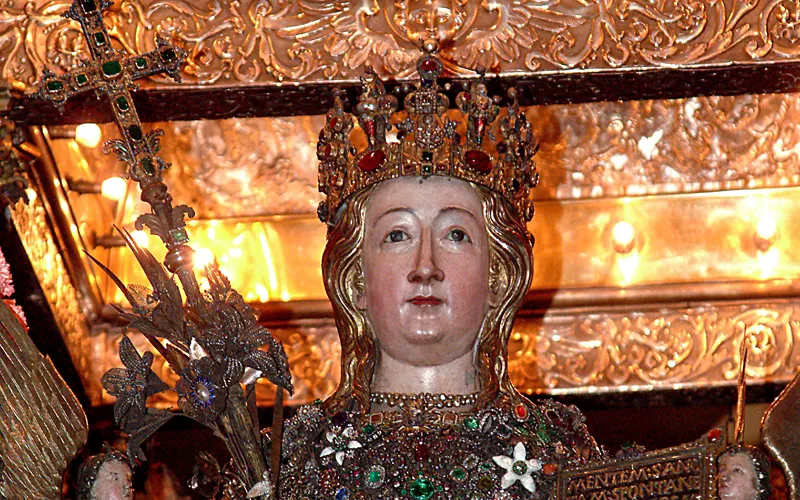Feast of Saint Agatha – Catania
Every year, Catania honors its beloved patron saint with an extraordinary celebration, comparable to Seville’s Holy Week or the Corpus Christi Festival of Cuzco, Peru.
For three intense days, the city seems to forget everything else, focusing entirely on this event — a blend of faith and folklore that draws up to one million people, including devotees and visitors from around the world.
Saint Agatha
Celebrated on February 5th, Saint Agatha is the patron saint of bell founders (whose bells were rung in times of distress, invoking her protection), weavers (legend says she resembled a Christian Penelope, convincing an insistent suitor to wait until she finished weaving a cloth she would unravel each night), firefighters (for her intercession against fires in medieval times), and women suffering from breast diseases (as she was martyred after enduring the amputation of her breasts).
Her Life
Agatha was born in Palermo or Catania around the year 238 AD.
She devoted her life to Christian teaching, preparing young believers for baptism, communion, and confirmation.
When the Roman proconsul Quintianus arrived in Catania to persecute Christians and force them to renounce their faith, he became infatuated with Agatha.
Learning of her vow of chastity, he ordered her to abandon her faith and worship the pagan gods.
Agatha refused.
To break her resistance, she was entrusted to Afrodisia, a corrupt courtesan, who was tasked with re-educating her through temptation — but Agatha remained steadfast.
Returned to Quintianus, she was imprisoned and tortured: first scourged, then subjected to the cruel tearing of her breasts with iron tongs, and finally forced to walk over burning coals.
She died in her cell on the night of February 5th, 251 AD, a martyr to her faith and purity.
Today, the relics of Saint Agatha are preserved in the Cathedral of Catania, where thousands of faithful gather every year to honor the Santuzza, the city’s eternal protector.




